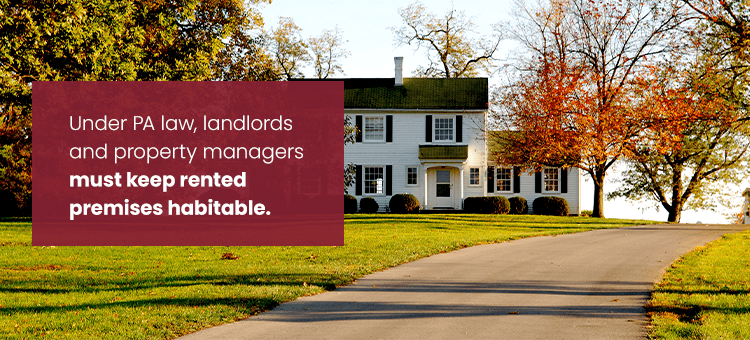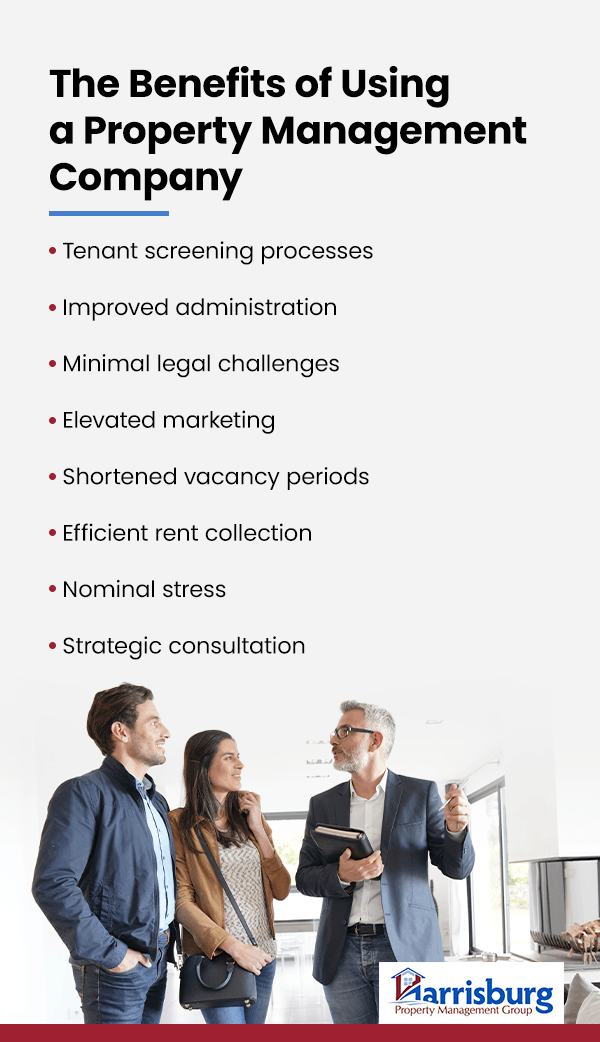Property Management Laws | Expert Property Management Tips
Property Management (Landlord/Tenant) Laws
Understanding property management (landlord/tenant) laws is crucial, whether you're a landlord or a property manager. Unfamiliarity with your or your tenant's rights could lead to challenging relationships and land you on the back foot financially.
Knowledge of property management (landlord/tenant) legal requirements allows you to keep relationships with tenants confident, positive and professional. Whether you're an experienced property manager, a seasoned landlord, or renting to others for the first time, one of the secrets to a successful rental arrangement is understanding the regulations governing your transactions.
Property management (landlord/tenant) laws can be challenging to understand, and you should always consult an attorney for legal matters and questions, but the basics are always a good place to start.
What Is Property Management (Landlord/Tenant) Law?
Property management (landlord/tenant) law is a subset of real estate law, governing the owners and managers responsible for managing apartments, office buildings, condominiums, cooperatives and homeowners associations, plus the tenants who occupy those properties.
Property managers and landlords have specific rights regarding their business operations and relationships with tenants, and anyone can refer to these to determine their responsibilities.
Property management (landlord/tenant) laws vary from state to state, but their goal remains to protect the rights of tenants, property owners and property managers. Property management (landlord/tenant) law covers all the landlord/tenant relationship elements and includes eviction, maintenance and repairs, discrimination, security deposits, and much more.

Property Management (Landlord/Tenant) Laws in Pennsylvania
Property management (landlord/tenant) laws vary among states. PA laws are comprehensive and protect the landlord, property manager and tenant. As a property owner or manager, you must know these laws or risk costly legal battles.
The following are the most common property management laws to understand.
Pennsylvania Real Estate Licensing
PA real estate licensing laws cover property management, including leasing and renting. Any property manager who plans to manage, market, list or lease real estate must have a license under Pennsylvania law.
A licensed broker may employ a salesperson to assist with some of these tasks, but the licensed broker must perform some management activities and supervise those not performed. In addition to real estate licenses for the manager, the property may need a license depending on the municipality.

However, there are exceptions to this law. For example, property owners who are leasing and managing a property they own do not need a real estate license in PA. In addition, the law does not require individuals providing specific support tasks to a licensed property manager to have a real estate license in PA.
More Property Management (Landlord/Tenant) Law
Aside from the laws that govern the required licensing for property managers and properties, some laws that focus on tenancy. More specifically, laws that focus on leases, notices, evictions, security deposits, and related.
Evictions
No one wants to evict a tenant, but evictions are part of property management. When the time comes, it's vital to have the law on your side, so you don't make an unnecessary mistake that tips things in the renter's favor.
There are different types of evictions, but all require you to provide the tenant with written notice —unless properly waived — complete with the information regarding the lease violation and demand to cure.
There are several reasons you may want or need to evict a tenant from your property, including the most common — non-payment. Other reasons include illegal drug use and excessive damage to the property.
As the property owner or licensed property manager, you must be familiar with the necessary steps depending on the reason for eviction. A wrong step with an eviction can cause extensive delays, increased cause or broader legal issues.
The eviction process can be challenging, so ensure you follow the precise legal procedures to avoid unpleasant and expensive court appearances.
Security Deposits
Security deposits are valuable for covering excessive damage to a property if the tenant causes the damage. They can also cover unpaid rent or utility bills if the tenants default. Security deposits differ from last month's rent deposits, which the tenant can only use to cover rent for their last month on the premises. You have more flexibility with a security deposit, as you can use it to rectify any damages before you take on a new tenant.
Some laws govern how much you can ask a tenant for as a security deposit. In Pennsylvania, you can charge a maximum of two months' rent for the first year of the lease, after which it drops to one month's rent.
Property managers retain the right to withhold some or all of the security deposit to cover excessive damage to the property or unpaid expenses. Of course, you don't want to overstep your legal rights, so check with state and local authorities to ensure you understand your tenants' financial responsibilities. For example, you may not deduct from a security deposit for everyday wear and tear.
PA law requires you to notify tenants in writing if you plan to withhold the security deposit. If you plan to repay or withhold a tenant's security deposit, it must occur within 30 days of the end of the lease.
Professional Obligations
As we discussed above, property managers must obtain licenses, and part of that process includes extensive criminal background checks. Once an applicant has a license, they must partake in ongoing education and pay fees annually to keep it in good standing.
Property managers have a fiduciary duty toward the people in the buildings they manage. It's the highest duty owed by law and requires them to act in their clients' best interest. If you're a property manager, ensure you avoid conflicts of interest and don't act against the client for self-gratification. Owning or managing a building means you owe a fiduciary duty to the community, not to each tenant.
Homeowners Association and Condominium Laws
Homeowners associations and condominiums form communities with their laws. Property management law links closely to these community laws, and property managers must be familiar with them. Assisting communities in their obligations is part of a property manager's job and must be within the bounds of the community's governing documents. Ensuring residents remain compliant with the community rules is an excellent example of a property manager's role.
Habitable Housing Laws
Under PA law, landlords and property managers must keep rented premises habitable. If you fail to do so, your tenant has the legal right to withhold rent until you repair the property. Alternatively, renters can pay for the repairs themselves and deduct the costs from their rental payment.
This law, also known as the implied warranty of habitability, states that landlords or property managers must provide tenants with the following:
- Reliable heat
- Sufficient hot water
- A roof that doesn't leak into the home

Required Disclosure Laws
Property managers must make specific disclosures to tenants in the rental or lease agreement, including details about the security deposit, lead-based paint on the property, existing property damage, rent control rules and many more. Ensure you're up to date with the required disclosures and make all the information available to new tenants.
Anti-Discrimination Laws
As a property manager, you must choose your tenants according to the law. Discrimination complaints can be expensive and lead to lawsuits. While you can choose your tenants based on specific criteria, some parameters cannot influence your choices. Ensure you're aware of these in your advertising process and in the questions you ask in an application form or interview.
You have the right to reject applicants based on the following:
- Consistent late rental payments
- Bad credit history
- Past behavior
- Poor references
- Factors that make them a financial risk to the landlord
You may not reject applicants based on these factors:
- Race or religion
- Physical or mental disability
- Nationality or sex
- Familial status
Tips and Tricks to Navigate Property Management Requirements in PA
Navigating property management (landlord/tenant) laws can be challenging — there is so much to keep track of, and one misstep could result in an expensive legal battle. Consider the following pointers to make this task easier.
- Brush up on the law: Property management (landlord/tenant) laws are detailed, and many tenants know their rights. If you need more clarification, ensure you know the law before taking action.
- Use legal resources: Research is your best friend, especially if you're a new landlord or property manager. Use every authoritative resource at your disposal and gather as much knowledge as you can.
- Keep detailed documentation: You never know when you may need to refer to documentation detailing repairs, agreements and many other interactions with tenants. Being able to substantiate your actions with evidence is an excellent legal strategy.
- Supply legal lease agreements: Your lease agreements and rental contracts must be thorough and aboveboard. Beware of illegal clauses in contracts that could cause damage in the future. Get a professional property management company and their legal team involved for clarification.
- Adhere to specific procedures: If you need to evict a tenant, ensure you follow all steps to the letter. For example, Pennsylvania laws require you to give a tenant 10 days before filing for eviction.
- Consult a property management company: Property management can be overwhelming. Professional property management companies are there to steer you in the right direction and relieve you of the burden of managing properties alone. Take time to choose a property management company that works for you. New Paragraph
The Benefits of Using a Property Management Company

Property management companies can help you professionally and personally, streamlining your operation and alleviating some of the stress of owning and managing rental properties. Here are some of the many benefits of outsourcing your property management.
- Tenant screening processes: Property management businesses have vast experience screening tenants, which minimizes the chance you'll end up with a bad tenant in one of your rental properties.
- Improved administration: Accounting and reporting are time-consuming. A property management specialist will keep detailed records and care for your accounts.
- Minimal legal challenges: Having dealt with irresponsible tenants before, property management companies are adept at identifying red flags and protecting you from legal and financial vulnerabilities. They also know the law and can ensure that all evictions and contracts meet legal requirements.
- Elevated marketing: Marketing is an integral part of successful property rentals. Property management specialists are experts at marketing and advertising rentals. They have local real estate knowledge and will help you set competitive prices for your properties.
- Shortened vacancy periods: Professional property managers will quickly prepare your property for new rentals. They know how to make cost-effective cosmetic improvements and have the contacts to provide competitive rates on significant repairs.
- Efficient rent collection: A considerable part of property management is collecting rent and late fees. Property managers are professional middlemen who can handle late rentals and evictions unemotionally and professionally.
- Nominal stress: Contracting a property management specialist means you don't have to deal with the many stresses associated with property ownership. They will take on the late-night phone calls, hire contractors and do the paperwork for you.
- Strategic consultation: When you are considering buying or selling, the type of renovations to perform and all the decisions in between and around, an experienced property manager has vast knowledge to share.
FAQs About Property Management Laws
What Legal Responsibilities Do Landlords Have in Pennsylvania?
Landlords in Pennsylvania have the following responsibilities for managing their property:
- Maintaining property
- Handling security deposits
- Issuing proper notice
- Following eviction processes
Landlords and/or property managers must perform routine maintenance to ensure that the property is safe and essential services are available. To comply with state law, landlords and/or property managers must also provide tenants with an itemized list of all deductions and return the remaining deposit funds within 30 days of ending the lease.
Landlords and/or property managers must follow specific legal procedures to ensure compliant evictions. For example, you or your property manager should issue sufficient notice to ensure tenants can find alternative housing before you can evict them.
Hiring a property management company like Harrisburg Property Management Group can make this process easier by taking these responsibilities off your shoulders. Contact us to learn how.
What Is the Best Way to Handle Tenant Evictions Legally?
Pennsylvania law requires landlords and property managers to have a valid reason for evicting tenants. Some examples of those reasons include:
- Failure to pay rent
- Lease expiration
- Violations of lease terms
- Criminal activity
You can give your tenant a 10-day Notice to Quit if their payment is late by one day or longer. This notice communicates that the tenant has 10 days to either pay their rent or move out.
You can also issue a notice of eviction if the tenant damages the property, keeps unapproved pets, or otherwise breaks the contract terms. If you plan to not renew the lease for any reason, you must provide tenants with sufficient notice to ensure they can move out completely at the end of their term.
If the tenant continues to be uncooperative, you or your property manager must take the eviction to court. You can legally evict tenants who commit criminal activity on your property without notice.
How Can Landlords Ensure Compliance With Local Rental Laws?
Landlords can easily ensure compliance with local rental laws by hiring a reliable property manager to take care of their rentals for them. Property management teams have more time to review changing laws and regulations, so they can inspect and maintain your property with those requirements in mind.
At Harrisburg Property Management Group, we take care of routine maintenance and inspections for you so you can have peace of mind. Learn more about our property maintenance services on our service page.
Start Your Journey With Harrisburg Property Management Group Today
Whether you're an experienced landlord, new to property rentals or a tenant looking for a professionally managed rental, Harrisburg Property Management Group is here to help you. Our owners were all landlords before we started the business, so we know what landlords need regarding property management.
We have unparalleled knowledge of Lebanon, Hershey, Harrisburg, Mechanicsburg, Carlisle and the surrounding areas, so we can provide you with the best information to make informed decisions about your business.
Customer service is paramount to us, and we pride ourselves on our professional, reliable service. Stay ahead of the curve by hiring an experienced property management specialist. Please get in touch with us to learn more about how we can help you streamline your property rentals today.














